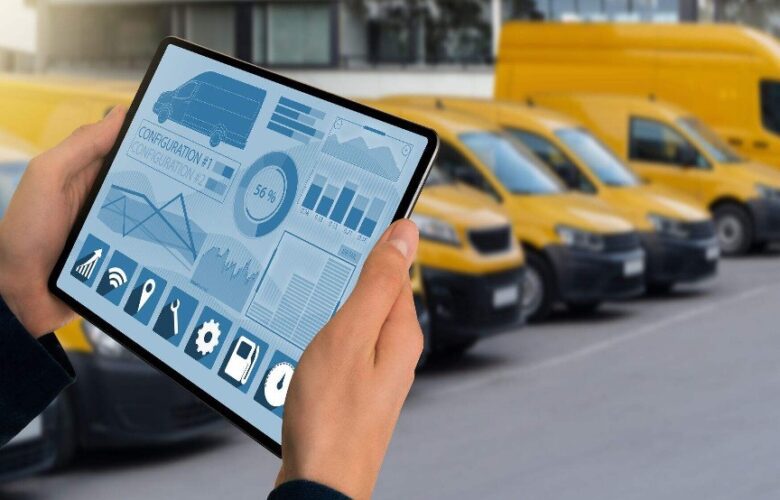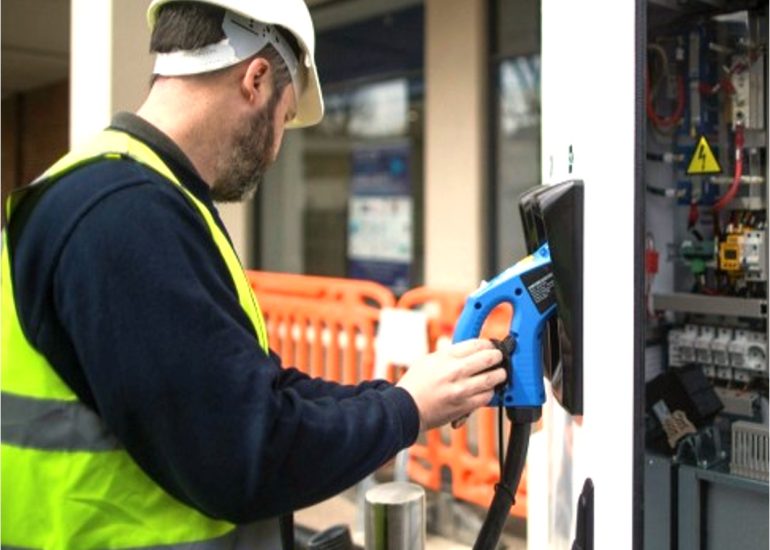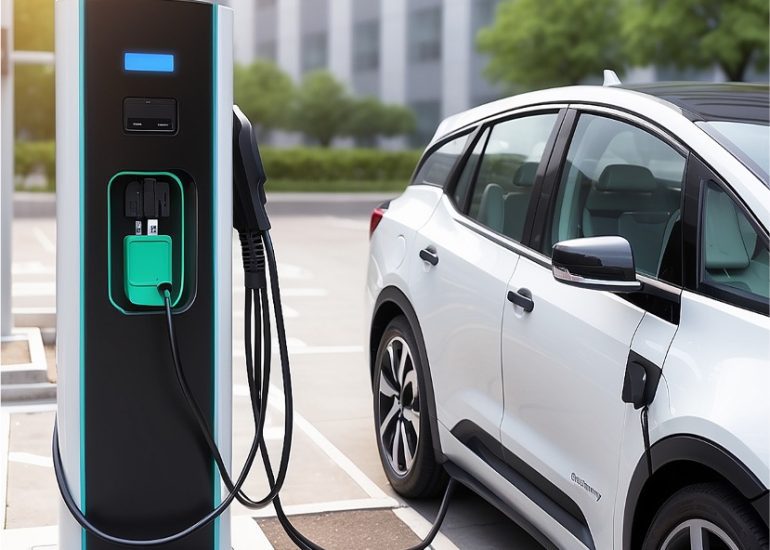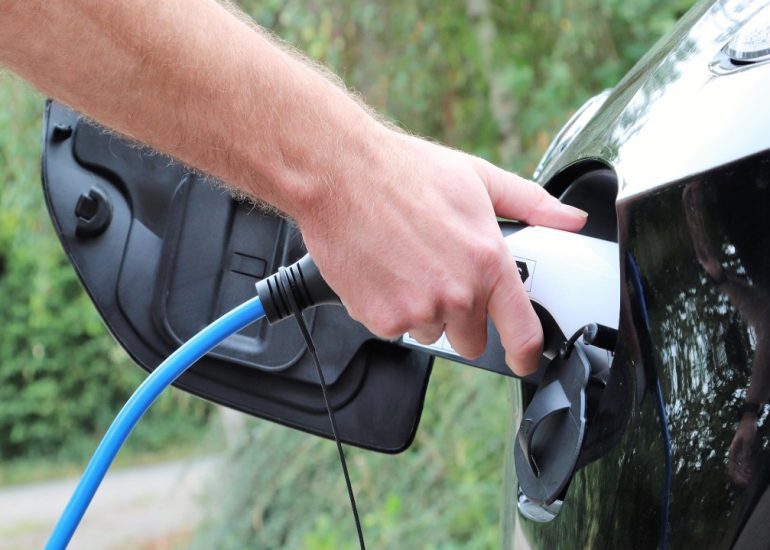Introduction: Why EV Fleets Need Smarter Management
Electric vehicles (EVs) have moved beyond being just an emerging technology they are actively reshaping how businesses handle transportation and logistics. Delivery services, corporate mobility providers, shared ride operators, and even public sector organizations are rapidly transitioning from fuel-based fleets to electric ones. The appeal is simple: reduced operational costs, lower emissions, and easier compliance with environmental regulations.
However, managing EVs brings new challenges. Unlike traditional vehicles, operators must monitor charging levels, track routes, schedule downtime for charging, manage driver assignments, and ensure timely renewals of insurance, registration, and servicing. Handling these processes manually can easily lead to inefficiencies and disruptions.
This is where an EV Fleet Management Solution becomes essential an intelligent platform that offers complete oversight of vehicles, drivers, and charging infrastructure from one centralized dashboard.
What is an EV Fleet Management Solution?
An EV Fleet Management Solution acts as the digital control room for electric fleet operations. It is typically cloud-based and allows businesses to:
- Track vehicle locations in real time.
- Assign and monitor driver trips.
- Manage charging schedules efficiently.
- Stay updated on insurance, registration, and servicing deadlines.
- Automate billing and operational expenses.
Unlike conventional fleet systems, an EV-focused platform emphasizes energy as much as distance. It ensures vehicles have sufficient charge to complete their assigned tasks, minimizing disruptions.
Core Features of ElectreeFi’s Fleet Management Platform
1. Real-Time Tracking
Operators can see where every vehicle is at any given time, ensuring better route planning and timely deliveries.
2. Data-Driven Insights
Trips are digitally recorded, capturing distance, speed, and routes taken. These insights help identify inefficiencies and improve fleet utilization.
3. Intelligent Deployment
Vehicles are dispatched based on charge levels, load capacity, and route requirements, ensuring energy efficiency and faster service.
4. Driver Management
Profiles, work hours, and driving behaviors can be monitored, helping train drivers for safer and more efficient performance.
5. Compliance Tracking
Insurance renewals, registrations, and maintenance schedules are tracked automatically, avoiding missed deadlines or penalties.
6. Geo-Fencing
Digital boundaries can be created for added safety. Alerts are sent if vehicles move outside their assigned zones.
7. Multi-Hub Oversight
For operators managing multiple depots, the system provides centralized visibility and balance across all hubs.
8. Automated Billing
Manual paperwork is eliminated with auto-generated invoices, expense tracking, and financial reporting.
Benefits for Fleet Operators
- Higher Efficiency: Smarter allocation of vehicles and routes boosts overall productivity.
- Reduced Costs: Optimized charging schedules, less idle time, and efficient driving habits cut operating costs.
- Enhanced Safety: Geo-fencing, driving logs, and compliance alerts improve fleet security.
- Sustainability Edge: Greener operations help companies meet ESG commitments.
- Scalability: The system grows seamlessly with fleet size from 10 to 1,000 vehicles.
Why Traditional Fleet Systems Fall Short
Conventional tools were designed for petrol or diesel fleets, focusing mainly on mileage, fuel, and maintenance. EVs have unique demands:
- Battery charge levels and health matter more than fuel levels.
- Charging downtime impacts scheduling far more than fuel refills.
- Energy costs vary by tariff and timing, making charging optimization critical.
An EV-focused platform like ElectreeFi addresses these challenges directly, ensuring uptime and cost efficiency.
The Global Push Toward Smart Fleet Management
Worldwide, companies are adopting telematics, predictive maintenance, and real-time monitoring. For EVs, the urgency is greater because fleet managers must optimize not just vehicles and drivers but also charging infrastructure and energy costs.
ElectreeFi is tailored for India’s diverse EV ecosystem. It is hardware-agnostic, works with different OEMs and chargers, and supports two-, three-, and four-wheelers.
ElectreeFi’s Role in India’s EV Transition
In India, ElectreeFi is helping operators simplify EV adoption. With real-time tracking, geo-fencing, charging optimization, driver oversight, and automated invoicing, it removes the complexities of managing electric fleets.
- Delivery operators benefit from quicker turnarounds and lower running costs.
- Corporates gain eco-friendly mobility solutions with compliance built in.
- Shared mobility providers enjoy higher reliability and streamlined operations.
Looking Ahead
As India accelerates EV adoption, the demand for smarter fleet solutions will only intensify. Businesses with growing electric fleets cannot afford inefficient management. Platforms like ElectreeFi will become the backbone of sustainable logistics, ride-hailing, corporate mobility, and public transport.
With the right EV fleet management solution, businesses can achieve the promise of lower costs, better efficiency, and environmentally responsible operations powering the future of mobility.
FAQs
What is EV fleet management?
It is a digital system that helps businesses oversee EVs, drivers, charging schedules, and compliance tasks.
Why is EV fleet management critical?
Because EVs require specialized monitoring of batteries, charging, and energy usage that traditional systems cannot handle.
What features does ElectreeFi provide?
The platform includes real-time tracking, trip logs, driver and compliance management, geo-fencing, charging optimization, and automated billing.
How does this reduce costs?
By optimizing routes, charging times, and driver performance while automating administrative tasks.
Can the system handle large fleets?
Yes, it scales smoothly for small operators as well as nationwide EV fleets.

